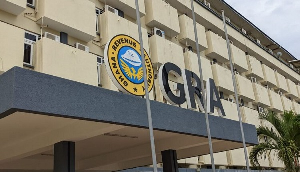(A GNA Feature) by Hannah Asomaning
Accra, July 23, GNA- Ghana is this year killing two birds with one stone with the celebrating of both Emancipation and PANAFEST Day to affirm the common heritage of African peoples the world over and to define Africa's contribution to world civilization.
The twin celebration will also be used to honour African heroes who played substantial roles in the events that led to Emancipation, which is the historic commemoration of the abolition of slavery in the British Crown Colonies in 1834 and the United States in 1865. The Day is celebrated in Ghana every August 1.
Emancipation started with the campaign against slave trade at the end of the eighteenth century. The British took a lead when in 1787 an abolition society, led principally by evangelical Christians, started to organize campaigns against slave trade.
The campaign succeeded in getting the practice by law in 1807, effective from January 1, 1808. As the leading slave trade nation at that time, Britain outlawed the trade among her citizens to mark an important point in the campaign.
A great deal of tension, conflicts and actual wars ensued that led to the final emancipation of all slaves. The final emancipation however came after years of campaigning by committed groups of people in Europe and the New World, who for humanitarian, economic, political, or moral reasons, saw the need to end the institution.
Many societies spearheaded this campaign. Among them were the British Anti-Slavery Society (1823) led by James Fowell Buxton and Zachary McCauley. An Act of abolition of slavery throughout the British colonies for promoting the industry of manumitted slaves and for compensating persons hitherto entitled to the services of such slaves. In conformity with the law, persons in the said colonies were on or before the first day of August 1834 discharged from all manner of slavery and were to be absolutely and forever manumitted and that the children thereafter to be born to any such persons and the offspring of such children shall in the manner be free from their birth. For the British West Indies, which started the celebration of Emancipation Day, abolition came in the Emancipation Act passed by the British Parliament in 1833 to become effective on 1 August 1834.
Emancipation, however, did not come only as a result of the passage of favourable laws at the end of successful campaigns but also through civil wars and direct revolts by the slaves. Emancipation came through legislation in the mother countries as well.
Importance of Emancipation Day Celebrations
The recognition of August 1 is not meant to merely serve as remembrance of the abolition of slavery. Emancipation Day should rather more consciously seek to create and develop a unique sense of unity, cooperation and understanding among Africans the world over as well as all peoples of conscience.
Mr Jake Okanta Obetsebi-Lamptey, Minister of Tourism and Modernization of the Capital City, says Emancipation Day and its celebration would afford Ghana the opportunity to further promote her as a preferred tourism destination, especially for Africans in the Diaspora.
"The potential benefits of attracting tourists to this country for the celebration is bound to have multiplying effects in terms of investment and advocacy," he said.
Ghana occupies a very important place in the history of Pan Africanism, civil rights, the slave trade and in the struggle for independence.
Mr Obetsebi-Lamptey said: "freedom from slavery and colonialism will be meaningless without freedom of the mind and Africans need to retrace the steps of their forefathers to enable them to emancipate themselves totally from social, cultural and economic struggles." Available records indicate that before the enslavement of the African, African civilization was supreme and held centre stage throughout the entire world. For example, Africans were the first to create culture, religion, philosophy, science and medicine. Mr Obetsebi-Lamptey said there was the need for the public to understand the celebration of Emancipation Day and to actively participate in it.
Over the years, an erroneous impression had been created that the celebration was an activity meant only for foreigners, especially the African-American community. It is indeed for the African in the Diaspora as it is for the Ghanaian or South African.
The relics of slavery such as the slave castles and dungeons remain up to this day constant reminders of Africa's sordid past. These monuments are not mere tourist objects but things that should ginger the present generation to initiate actions for a better tomorrow. The castles seem to be telling this generation: "Rectify the wrongs of the past in order to put the future in its proper perspective."
The heritage of Emancipation is the reclamation of the African historic personality, which ultimately must express itself in the creation of an African Paradigm of Power in the 21st Century otherwise Emancipation, would clearly signify a continuation of Africa's role as an extension of European history.
Africa cannot develop or achieve complete economic and political independence without first returning to its own historical personality.
For Ghanaians, Emancipation Day has a spiritual significance because it is an occasion to give thanks to their great ancestors who featured prominently in the emancipation process. They would remain the pace setters in their glowing spirit, determination, purpose and meaning of emancipation.
The celebration of Emancipation Day again provides the opportunity to go back into history and find out more about one of the cruellest activities in human history. It is however also an occasion for Africans to turn the tide and make the celebration a grand occasion for all descents of the African race to confer, consult, discuss and contribute towards making the African continent a place of pride and positive achievements.
African Heroes
Ghana takes great pride in honouring George Ekem Ferguson, one of its heroes and scholars who played a great role in the country's struggles and development process. A distinguished administrator, geographer, soldier, geologist, missionary and astrologist, Ferguson was very instrumental in demarcating the boundaries of the then Gold Coast in 1896.
Ferguson was born at Anomabo in the Central Region on July 14, 1864 and is remembered as the greatest apostle of the British Empire in the northern part of the country.
Ferguson, after his basic education, had an ambition for further training in the UK and, upon the recommendation of Sir Brandorth Griffith, he left for England for a course of instruction in practical science. He later entered the School of Science at the Royal School of Mines in London.
Mr. Ferguson returned to the Gold Coast as a leading cartographer, surveyor and architect, compiling for the government a map of various parts of the country.
Among his distinguished works was his ability to influence in concluding many treaties of friendship with traditional rulers to induce them to join the Gold Coast and his assistance in building the Kumasi Fort in 1895-1896
In his endeavour to abolish slavery, Mr. Ferguson was killed in cold blood by Samori's army on April 7, 1897.
Currently, in both Anomabo and Wa, his birthplace and death place respectively, stand his memorials cast in stone and sand. The people of Anomabo are clamouring for the return of his remains to the place of his birth to enable them to give him a befitting burial. Other African heroes to be honoured include Patricia Bath, who invented the laser phacorbe, a medical instrument, Mohammed Ali, renowned former heavyweight boxing champion, W.E.B. Du Bois, a Pan-Africanist, Martin Luther King Jar., one time president of Montgomery Improvement Association, and Malcolm X, son of Marcus Garvey, among others.
Ghana takes pride in hosting this annual event to show solidarity with all peoples of African descent and those in the Diaspora. It is time to let the blood, sweat and tears of the ancestors to impact on the present lifestyles of Africans, both on the continent and in the Diaspora to prepare them to meet the current global challenges. As we celebrate Emancipation Day, we must also recognize the efforts of our African heroes and honour them and thereby propel Africans into a brighter future.
PANAFEST, which has a common aim with Emancipation Day, must be dedicated to re-invigorate the ideals of Pan-Africanism and the development of the African continent.
Entertainment of Sunday, 24 July 2005
Source: GNA












